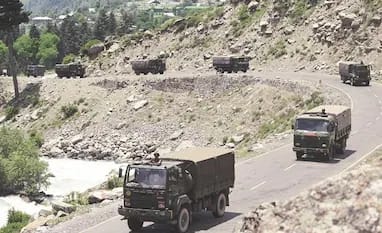The Chinese Communist Party (CCP) has admitted for the first time since the Galwan Valley incident in June 2020 that there were specific reasons for China’s aggression along the India-China border. This comes from a senior analyst who is a member of the CCP. The episode, in accordance with Hu Shisheng, head of the South Asia Institute of the China Institutes of Contemporary International Relations, was a natural outcome of India’s ongoing violations of numerous accords. In his post on Weibo, Hu outlined four reasons “why China believes India violated peace at the border.”
Hu’s initial justification was India’s acquisition of the Chumi Gyatse Waterfalls in the Dongzhang region, a contentious location along the Line of Actual Control (LAC), in 1999. Hu’s second justification was India’s August 2019 Constitutional Amendment, which involves abolishing Jammu and Kashmir’s special status under Article 370 in order to modify the state’s political status. Hu listed India’s military patrols’ renewed hostility since early 2020 as the third factor. Hu’s fourth and final argument was that Prime Minister Narendra Modi had broken the Beijing agreement Rajiv Gandhi and Deng Xiaoping made in 1988 to put the border dispute on hold.
Hu claimed that Modi had turned the border dispute into the focal point of bilateral ties, which has prevented China and India from moving forward or cooperating normally or developing a mutually beneficial strategic relationship. Three areas make up the three sectors of the border dispute between China and India: the 90,000 square kilometre eastern sector in Arunachal Pradesh; the 3,000 square kilometre central sector near Nepal; and the 33,000 square kilometre western sector in Ladakh.
Questions concerning China’s strategic calculations and tactical goals are critically raised by the timing and character of the Himalayan confrontation. The infrastructure arms race along the border is something China wishes to put an end to, but strategically it has no immediate need to do so because doing so would slow India’s rise as a continental power.
China’s border policy will affect regional stability and relations between China, India, and the United States on a geopolitical level.

